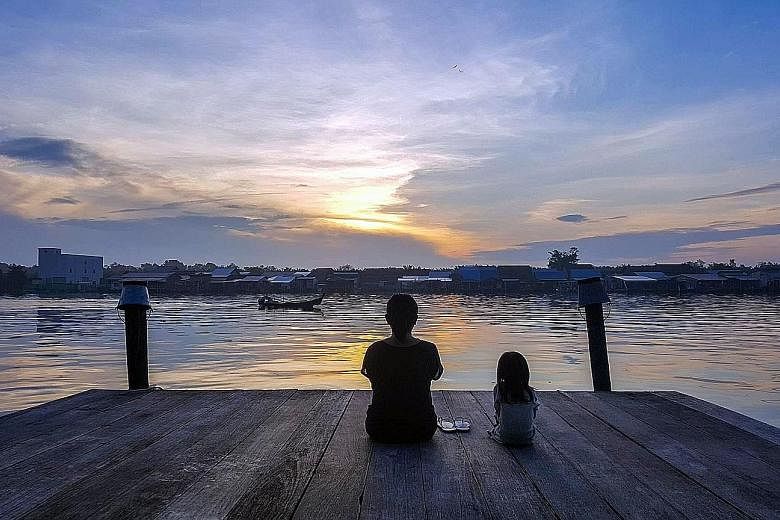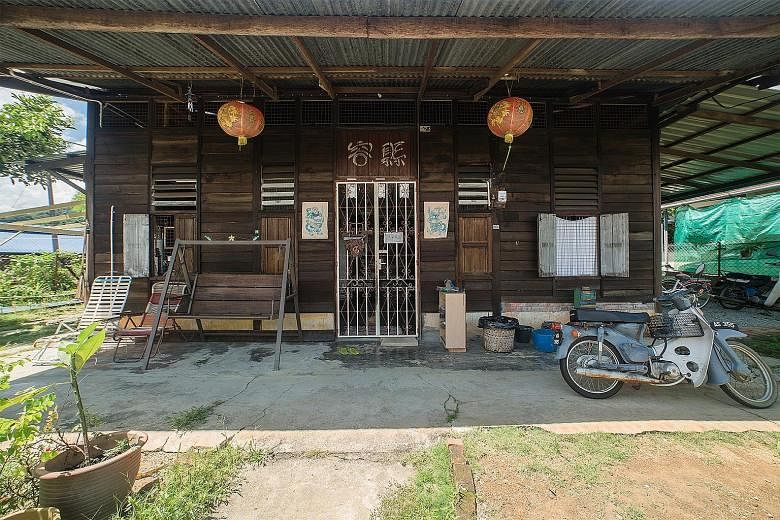Mr Kam Gin Kang was 24 when he left his job selling electronic equipment in Kuala Lumpur to move to his grandparents' village in a quiet corner of Perak, some 250km away.
He had never lived in Sauk before, as his father had moved to the city well before he was born.
His family's wooden house was also in dire shape, having been abandoned for 10 years, but Mr Kam, 29, had an idea that it could be turned into a guest house.
"Life in KL was not suitable for me; I couldn't find what I wanted in KL because life was too fast and noisy there," said Mr Kam, better known as Kamo to his friends.
"A friend advised me to chase my dream, and it had always been my dream to open a guest house."
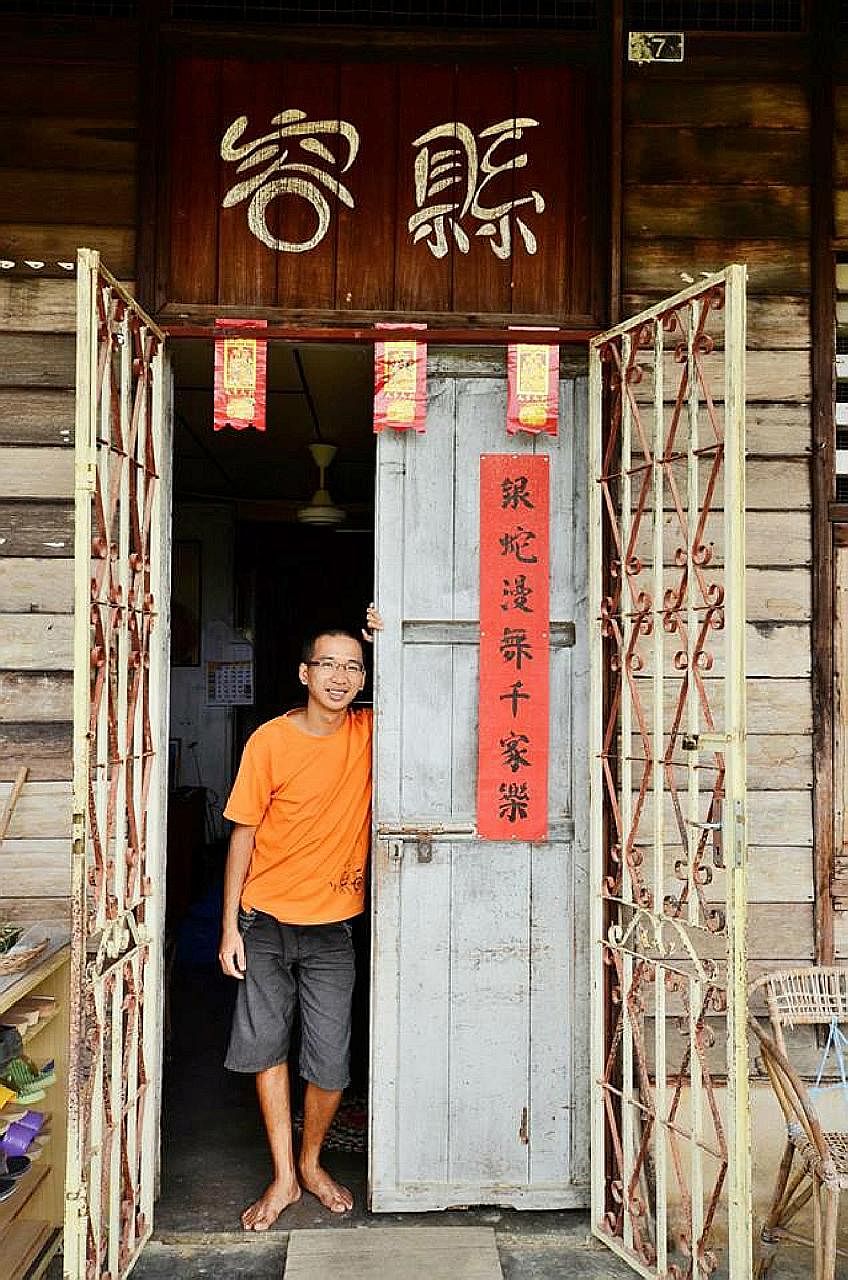
He was filled with doubts, and also had no clue how to repair the house. But he decided to go ahead.
His father's carpentry skills came in useful, and gradually, the simple house was transformed into a nostalgic guest house, where guests sleep on mattresses on the floor and bathe with cold water scooped from a bucket.
That was in 2012. It did not take long before Kamo Home, with its Instagrammable rustic creativity, began to draw visitors with the same idea as Mr Kam - to get away from the hectic city, mostly Kuala Lumpur, sometimes Singapore - albeit for just a short while.
Mr Kam is among the small number of young Malaysians who have swum against the tide sweeping the young from the countryside to the cities.
They have moved from the bright lights of the cities back to their quiet home towns, sometimes bringing with them a distinctly youthful sensibility to start new ventures like guest houses, cafes and festivals.
Mr Kam's Kamo Home in Sauk is one. There are also other similar one-of-a-kind guest houses, like the Ikan Kurau Homestay in the quiet fishing town of Kuala Kurau in Perak, or Platform Coffee in Pekan Nenas in Johor, or Rainforest Tree House in Kulai, Johor.
Art and cultural festivals have sprung up in unlikely locations, like the small towns of Kluang in Johor and Kajang in Selangor.
Even the fishing village of Pulau Ketam in Selangor has been hosting an arts festival since 2014 with its sidewalks turned into outdoor arts spaces.
Then, there are charming oddities like the Kedai Makanan Bicycle Stopover (Bicycle Stopover cafe) in the quaint Kuala Kubu Baru town in Selangor, set up by well-known restaurateur David Chin, which opens for only half a day on weekends.
Another notable development is the architecturally designed Kaktao 46, a community library built as an academic project by a KL-based university in the sleepy village of Kuala Sepetang in Perak.
Malaysia's home towns seem to be the new frontier for the young.
HOME IS HARD WORK
But it is not easy to carve out a living outside of the city. Economic opportunities in rural areas remain few and lowly paid even if the cost of living is lower, and it takes a lot of hard work, creativity and patience to start new ventures.
"They all say they would like to do the same thing as me," Mr Kam said, with a laugh.
But, of course, very few do. The population flow is persistently from rural to urban areas. Three out of four Malaysians in the country of 31.7 million now live in cities. Villages are left hollowed out.
Those who go against the flow by returning to their home towns have to negotiate a steep learning curve.
Mr Kam said he had to learn from scratch necessary skills such as carpentry and house building, and even gardening.
Said Ms Saloma Gugug, another hometown entrepreneur: "It really depends on your passion, you need to be willing to keep trying new things and learning new things."
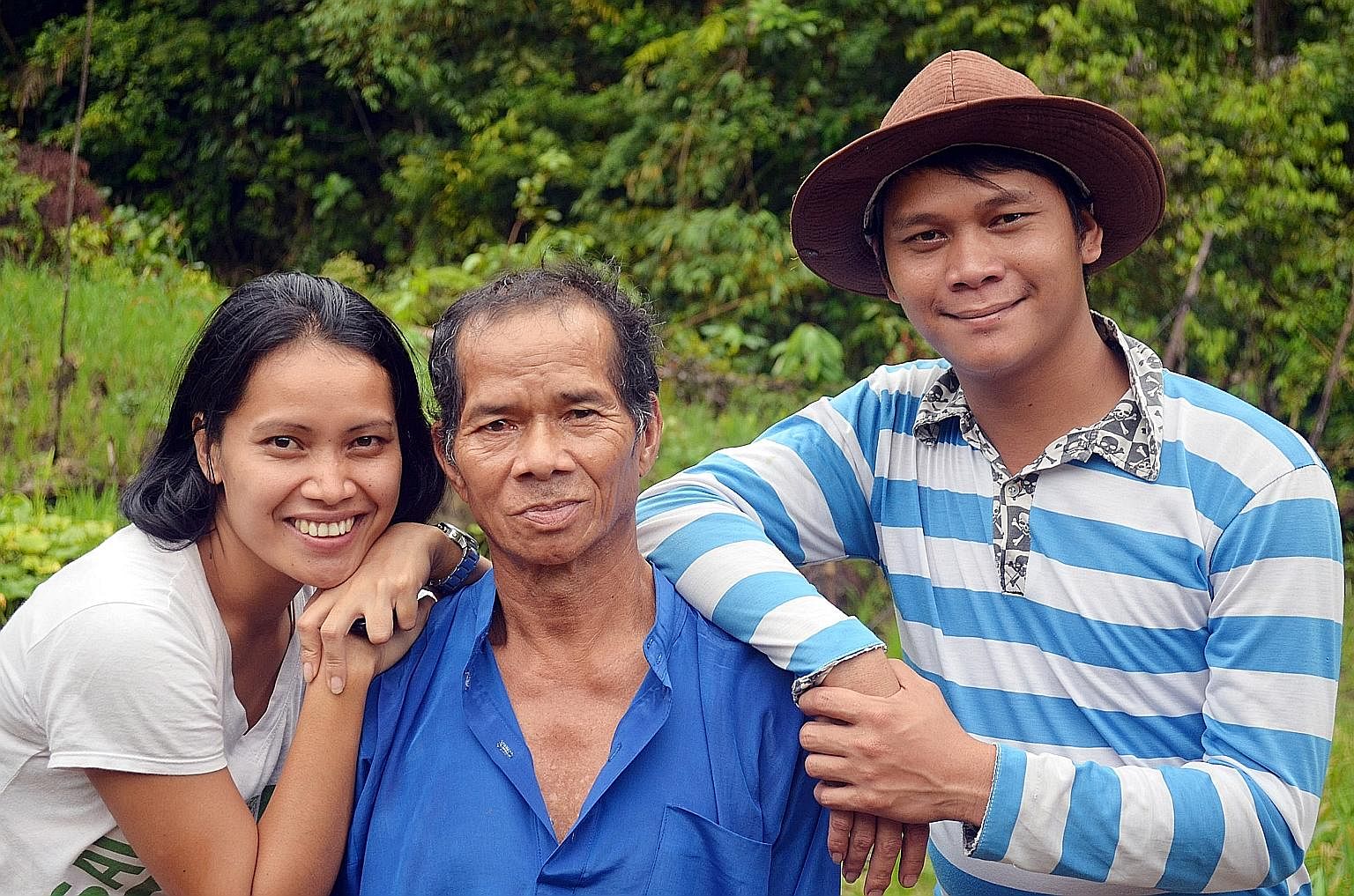
Five years ago, Ms Saloma, then 25, decided to set up a travel business in her home village of Kampung Sadir, tucked in the pristine foothills of a mountain range around 90 minutes' drive from Kuching in Sarawak.
She had graduated with a degree in mass communications but her heart remained in the countryside.
Deciding against joining the corporate sector, Ms Saloma instead began organising tours to her village, housing tourists in her family home.
This became such a hit that the family soon expanded the house from three to six bedrooms, and built open decks for visitors.
It was initially tough, particularly because the local villagers were not certain about the venture, and Ms Saloma found herself the target of gossip because of the influx of foreign visitors to the home of a young, single woman.
"They didn't know much about tourism at that time and wondered what sort of activity was taking place here. It was very difficult for my parents, and I told them that I would stop the homestay if they were unhappy about it," she said.
But her parents supported her. Eventually, the villagers came to understand her project, and are now happy to work alongside to provide services as guides or drivers.
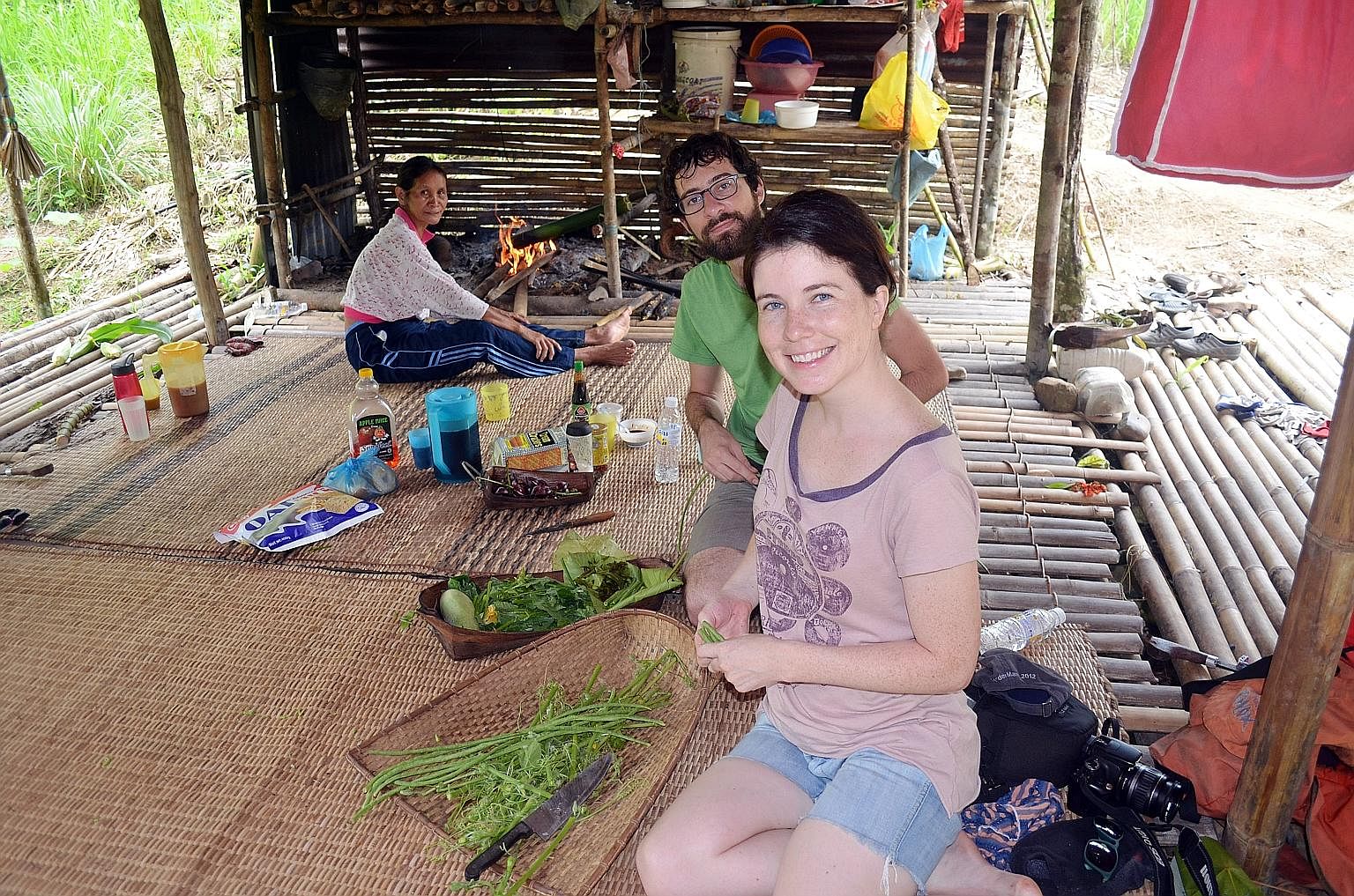
They also sell produce such as vegetables and handicraft to visitors, while Ms Saloma has created a volunteer programme enlisting tourists to help out at the community library and night school lessons for local children.
Her efforts in promoting Kampung Sadir's hidden charms began to also attract day-trippers, prompting the village to set up a tourism committee and to charge an RM8 (S$2.50) entry fee to the waterfalls for site maintenance.
ECONOMIC IMPACT
The efforts of people like Mr Kam and Ms Saloma have had an economic impact on their home towns, as more people learn of these quiet places which traditionally are not tourist destinations.
Their attraction: The simple and slow lifestyles that still hold sway there.
Mr H.K. Ng runs Ikan Kurau Homestay in the fishing village of Kuala Kurau in Perak. He found that visitors enjoy the simple things that locals take for granted, such as the padi field landscape and coastal views, having fresh seafood cooked at home, and even visiting a salted egg factory.
"Kuala Kurau has never been a tourist destination at all, and yet, people come here," he said.
Mr Ng, 39, had grown up in this town around 110km from Ipoh before moving to Kuala Lumpur and England for further studies. He worked in an engineering job in England for several years before returning home to continue the job in a regional role.
Before long, he was exhausted by the constant travel.
"By then, I had come to feel that my home town was really quite interesting as friends who visited me here actually seemed to find it exciting," he said.
Thus, in 2013, he bought a 1960s wooden house, then spent two years to restore its original charm by tearing away modern touches like plaster ceilings. It opened as a guest house in 2015.
Mr Ng said that while it sounds counter-intuitive, he hopes that their little home towns will not get too many visitors although their businesses rely on tourists. He is fully aware that people come here for the very same reason that he came back those many years ago - for the tranquillity.
Mr Kam said their mission should not be about changing their home towns - although he acknowledged that their new ventures will inevitably have some impact on life there.
The Sauk village, which his grandfather and father had called home, had just three simple restaurants for decades. Now, it has eight.
"After five years here in Sauk, I see that the people here already have a good life. There is no need to change anything here," he said.
"What I hope is that we can help preserve the community in the way that the people want it."
